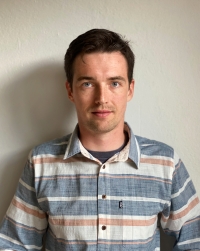
Student at the University of Applied Sciences Kufstein Tirol created a customized economic analysis for the Kufstein District
The topic of his bachelor thesis was chosen in close cooperation with Stadtwerken Wörgl GmbH (Wörgl Municipality Utility Company) where he currently works as a project assistant in the Innovation and Sustainability department. His thesis was overseen by Dip.-Ing. (University of Applied Sciences) Peter Teuschel from the Wörgl Municipality Utility Company and University of Applied Sciences Professor Dr.-Ing. Woyke Wolfgang, professor for Energy Business at the University of Applied Sciences in Kufstein.
“The CEO Managing Director, Mag. (University of Applied Sciences) Reinhard Jennewein guided me to my topic. He not only has the capability of detecting trends at an early stage and correctly evaluating them, but he can also predict developments because of his keen foresight. The potential of this topic area was explored using a case study, and the course was set so that the work can begin,” says Höck who is glad about the good collaboration.
Lukas Höck found another motivation for selecting this topic: the importance of sustainability and mobility to his bachelor program at the University of Applied Sciences Kufstein Tirol, “I see integration of sustainability and mobility as essentially important since mobility still has a large amount of research potential, and refinements may be needed to solve upcoming problems. Sustainability is very important to the energy transition and gives bachelor program graduates a wider range of careers to choose from.”
Sustainability and mobility are focus modules in the Energy Business study program (now: Energy & Sustainability Management*), which conveys regional energy concepts and innovative mobility concepts to students and trains them to be in-demand specialists in this sector.
- People who are interested in environmental, energy, and mobility issues make the perfect choice when they choose this study program. Online applications for the upcoming winter semester can still be submitted until September 6, 2020!
Main parts and specifics of the thesis
In his thesis, Höck first describes the current state of technology of electromobility in Austria and gives a detailed discussion of the characteristics of drive concepts and batteries, “After finishing the general part, the average multi-person house in Wörgl was discussed using several data analyses and possible effects on the grid were explored with model load flow calculations. The main part of my thesis deals with a cost-effectiveness analysis of charging infrastructure contracting. This main chapter examines an innovative business model and presents important aspects of its business-related, main features. A statement of costs was created using the Monte Carlo Method to present the basics of a charging infrastructure contracting project, and the dynamic payback period was calculated associated with a rate model. A SWOT analysis rounds out this chapter. The profitability results were described at the end of my academic paper.”
“The combination of technology and business worked very well in my study program and my bachelor thesis. In my opinion, it is groundbreaking to analyze both sides, and this is probably where the uniqueness of my thesis is,” explains Lukas Höck who will soon be an Energy Business graduate.
Potential and future outlook
In his thesis, Lukas Höck conclusively demonstrated the existing potential and provided a view of the future, “The expansion to an adequate charging infrastructure for electric vehicles must go hand-in-hand with the amount of e-vehicles or get ahead of it in the best case. The increasing amount of vehicles will also put additional demands on the power grid, and grid operators have an obligation to correctly assess and adapt this new demand. Integrating the charging infrastructure into the existing distribution network offers great potential for new business models and charging current management.”
“Because of my research, I am convinced that the street scene that we are used to will change substantially because the transportation industry in Austria is one of the largest emitters of greenhouse emissions. If battery technologies and recycling measures continue to advance, if raw material mining for battery production can be done in a sustainable way, and awareness continues to move forward, electromobility will become established in my opinion. Vehicles with alternative drive concepts such as electric vehicles and hydrogen vehicles give us the opportunity to drive with clean energy while emitting no pollutants and greenhouse gases whatsoever. It would be desirable if the e-car in the automobile industry would achieve a market penetration in the future that is similar to the market penetration of the e-bike in the bicycle industry,” says Höck.
Added value for the Kufstein District
The finished results of the thesis were used as a decision-making basis and foundation for the new charging infrastructure contracting model. The technical considerations were made using the Wörgl location, and the economic model is to be used after completion in the Kufstein District and later in the Tirol lowlands. “The goal of this thesis was to present the technical effects of electromobility on the public electricity grid in Wörgl. The focus was on the increased power and energy. The business model that was examined may offer Austrian electricity companies an additional area of activity and promote expansion of electromobility. A customized economic analysis of the Kufstein District was made,” says Höck in summary about his bachelor thesis.
* subject to accreditation by AQ Austria
